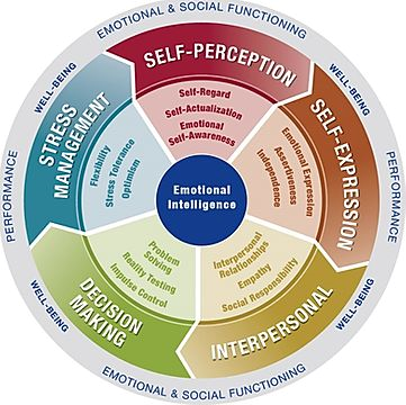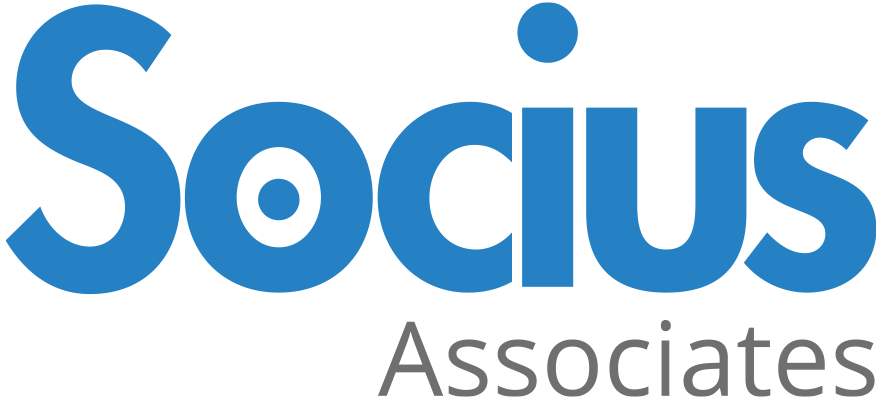Emotional Intelligence in the Workplace
Leadership nowadays is a social challenge more than a task oriented challenge, as evidenced by the themes teams and leaders most often share with us:
- Communication skills
- Decision making
- Dealing with underperformance
- Conflict resolution
At Socius we think that the term ‘soft skills’ is one of the most misleading ones around. Why else is it frequently so hard connecting with the people we work with?
Emotional Intelligence (EI) defined
EI is a set of emotional and social skills that help us navigate life. How well these skills are developed determines how effectively we perceive and express ourselves, develop and maintain meaningful relationships, deal with change and stress and make decisions. Our EI can be accurately measured using the EQ-i 2.0 assessment.
EI is different from IQ, which is the measure of our cognitive ability. Neither is EI the same as personality, which can be described as the patterns of thinking, feeling and behaving that define us.
The case for developing Emotional Intelligence in the workplace
Research has shown that emotionally intelligent leaders:
- Possess higher interpersonal sensitivity
- Are better equipped to handle stressful situations
- Maintain calm and composure under pressure
- Are proven to exceed performance targets by 15-20%
- Have higher retention rates than those that scored lower on EI competencies
EI has also been shown to be positively related to teamwork behaviour.1
1 The Emotional Intelligence of Leaders: a profile of top executives. Stein et. al., 2008
…effective leaders possess multiple forms of intelligence which allows them to respond successfully to various situations.
The Emotional Intelligence of Leaders: a profile of top executives. Stein et. al., 2008
‘It is an accepted finding that emotional intelligence is a strong predictor of job performance. […] In graduate programs and cognitively demanding careers, such as engineering, the selection process focuses primarily on intellectual abilities, while emotional intelligence bears much more weight in predicting success and who emerges as a leader.’
Shipley, N. et al,. (2010). ‘The effects of emotional intelligence, age, work experience, and academic performance’. In: RHEJ. Vol. 9.
The EQ-i2.0 measure of Emotional Intelligence
The EQ-i2.0 assessment is one of the world’s most trusted psychometrics. It is based on decades of robust psychological research rooted in Reuven Bar-On and Daniel Goleman’s work dating back to the 1980s and 90s.
The test itself is a 133 item online questionnaire resulting in a comprehensive report providing detailed insight into five composite areas and fifteen subscales, as shown in the diagram.

Depending on the requirement results are summarised as follows on request:
Workplace Report:
A comprehensive overview and interpretation of an individual’s EI including strategies for action.
Leadership Report:
This report applies a leadership competency framework to the interpretation of an individual’s EI. It also highlights the links between leadership competencies and emotional intelligence.
EQ 360 Report:
Much like the well-known 360 review, this EI report combines an individual’s self-ratings with the ratings of managers, peers and direct reports.
EQ 360 Leadership Report:
By combining the Leadership and EQ 360 reports the leader obtains a thorough overview of their EI as it relates to key dimensions of leadership.
Group Report:
This report combines the EQ-i2.0 scores of individuals to create an overview of group results. It helps to identify group strengths as well as areas for development.
All reports are presented to individuals and teams in a facilitated session prior to release. Results remain the property of the participant and cannot be shared with third parties without their permission.
